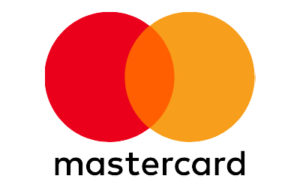Undertaking a landscaping project involves more than just enhancing aesthetic appeal. It requires effective management of the resulting debris. Whether you’re removing old plants, clearing branches, or digging through the soil, these materials need proper disposal to maintain a tidy work environment.
Considering a dumpster rental can simplify the process considerably. It provides a centralized location for all waste, streamlining cleanup efforts and reducing the time spent handling debris. With a dumpster on-site, you can efficiently manage various types of waste, from soil and branches to paving materials, without worrying about overflow.
Furthermore, understanding local disposal regulations is essential. Renting a dumpster ensures compliance with these laws, helping you avoid unnecessary fines or penalties while promoting environmental responsibility. By evaluating the needs of your landscaping project, you determine if a dumpster rental is the right choice for effective and efficient waste disposal.
Evaluating the Needs of Your Landscaping Project
Analyzing your landscaping project’s scale and scope is the first step in determining whether to rent a dumpster. Large-scale projects like major garden overhauls or creating new outdoor spaces typically generate significant waste. This includes the digging up of soil, the removal of large trees or bushes, and outdated patio or paving materials. The volume of waste created by such projects often exceeds the capacity of regular curbside disposal options.
Landscaping projects can produce various types of debris, each requiring appropriate disposal. Common waste includes soil, rocks, and sod from leveling the ground, excess mulch, branches and leaves from tree trimming, and old or damaged plants being replaced. Understanding the nature of these materials helps in deciding the most effective way to manage them.
Several factors influence the decision to rent a dumpster for your project. The size of your project is a primary consideration, as larger projects generate more debris. The type of waste also matters, as certain materials are not accepted by standard waste collection services. Efficient waste management through a dumpster rental ensures that all types of landscaping debris are handled appropriately, making the cleanup process smoother and more convenient.
Benefits of Renting a Dumpster for Landscaping Projects
Renting a dumpster brings multiple advantages to landscaping projects, primarily by streamlining waste management efforts. A centralized collection point for all debris can drastically reduce the time spent managing waste, allowing more focus on the actual landscaping work. This efficiency contributes to a tidier, more organized workflow, preventing potential hazards associated with debris spread across the site.
A key benefit of having a dumpster on location is the convenience it offers. Instead of dealing with multiple trips to a landfill or relying on limited curbside pickups, all waste can be deposited directly into the dumpster. This centralized waste disposal approach simplifies the cleanup process and ensures debris is managed effectively.
Furthermore, renting a dumpster enhances both the efficiency and safety of the job site. By reducing the need to maneuver debris piles manually, workers can focus on their primary tasks without concern for scattered waste. Clear and clutter-free pathways minimize the risk of accident or injury, creating a safer working environment. Overall, dumpsters are an invaluable tool for maintaining order and productivity throughout a landscaping project.
Choosing the Right Size and Type of Dumpster
Selecting the right dumpster size for your landscaping project is essential for effective waste management. The project’s scope and type of debris play a significant role in this decision. For smaller projects, such as garden cleanups or minor landscaping adjustments, a 10-yard dumpster might suffice. However, larger renovations that involve significant ground leveling or tree removal may require a 20-yard or even a 30-yard dumpster to accommodate the additional volume of waste.
Different types of dumpsters cater specifically to landscaping needs. Roll-off dumpsters are particularly useful for these projects due to their open tops and large capacity, making them ideal for loading bulky items like soil and branches. Yard waste dumpsters are another option, designed specifically for organic materials and reducing the effort required to compost or process them separately.
Proper estimation of debris volume helps optimize dumpster use, ensuring efficiency and cost-effectiveness. Start by evaluating the types of waste involved, then calculate the approximate volume to decide the dumpster size. Planning ahead allows you to avoid last-minute size upgrades, ensuring smooth operations and effective waste disposal management throughout the project.
Environmental and Regulatory Considerations
Understanding and adhering to environmental and regulatory considerations is crucial for landscaping projects involving waste disposal. Local regulations often dictate specific disposal methods for certain types of materials. For example, organic materials like grass clippings and branches may require different handling compared to inorganic waste such as stones or concrete. It’s essential to segregate waste properly to comply with these guidelines.
Following local regulations ensures that landscaping waste is disposed of responsibly, protecting the environment and community. Many areas implement strict guidelines to prevent illegal dumping and promote recycling. Being informed about applicable rules helps avoid potential fines or disruptions caused by improper disposal.
Responsible waste management goes beyond compliance, offering ecological benefits. Proper disposal of organic waste helps reduce landfill use, promoting sustainable practices in community landscaping efforts. By prioritizing environmentally sound disposal practices, you contribute to reducing your project’s environmental footprint, promoting green practices within your community.
Conclusion
When planning a landscaping project, waste management should be a priority consideration. Renting a dumpster provides a practical solution to efficiently handle and dispose of various types of waste generated during the project. From determining the appropriate dumpster size and type to adhering to environmental guidelines, these aspects are crucial in maintaining an organized and compliant worksite.
As you embark on your next landscaping endeavor, consider the advantages of having a designated waste management solution on-site. Simplifying the cleanup process, reducing safety hazards, and ensuring regulatory compliance are just a few of the benefits you’ll enjoy. With the right preparations and tools, your landscaping project can proceed smoothly and successfully.
Make your landscaping projects hassle-free and efficient with reliable dumpster rental services in Moline, IL, at Speedy Dumpster Rentals. Our services cater to all your disposal needs, ensuring compliance with local regulations while maintaining an eco-friendly approach. Contact us today for a free virtual estimate and to find the perfect dumpster solution for your project, and experience a seamless waste management process.







